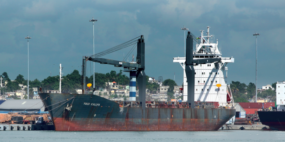Posted on 14 Dec 2011
Current estimates place the cost of bribes paid to gain business advantage at US$ 1 trillion annually; the embezzlement of public funds or theft of public assets by corrupt officials is unquantifiable. The World Bank also estimates that tainted procurement amounts to US$ 1.5 trillion, with an unquantified volume of fraud in the private sector. The result of this development is a reduction of Foreign Direct Investment, reduced growth rates and a significant reduction of tax revenues with a consequent reduction in state spending on infrastructure and public services. The cost associated with corrupt practices is not only a financial cost – the reputational damage to companies which have been associated with corrupt practices, such as Siemens, continue to dominate the press.
The scale of global corruption shows no sign of abating. Companies readily engage in corrupt practices to maintain market position and share. Transparency International has highlighted that it is companies from emerging market economies such as Russia, China, India and Brazil that are more prone to pay bribes in return for contracts, with clear implications for Western
companies where corruption controls are significantly higher and more effective. Some argue, incorrectly, that they can only compete against such companies by behaving in a similar manner.
International initiatives to combat corruption continue to struggle. Such initiatives include the UN Convention against Corruption, the OECD Convention on Combating Bribery and the US Foreign Corrupt Practices Act. Despite this, awareness levels remain low with many companies, including those in the OECD, unaware of the legislation or unwilling to implement measures to combat corruption. It can however be assumed that awareness will grow as the implications of non compliance with such initiatives become more apparent.
Global media coverage has made companies increasingly sensitive of the needs to protect their reputations worldwide and has also lead to growing public awareness of the cost of non compliance. The key challenge for companies will be that they can no longer operate by one set of standards at home and by another abroad. However, companies will find it increasingly difficult to compete given that rivals from less well regulated and controlled jurisdictions will continue to play by different rules. As a consequence it can be expected that Western companies will revert to “name and shame” tactics in order to overturn commercial decisions which have been taken due to corrupt practices. Greater awareness of the economic costs of corruption and associated social costs will boost reform agendas at a national and international level.



